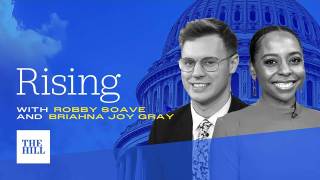When governments invade women’s privacy
China and the United States are distinct countries with distinct political systems. But in both countries, pregnancy and abortion are dividing society.
In authoritarian China, government officials are telling women to have more babies to address a perceived population shortage.
Ironically, for many years China had a draconian one-child policy, forced women to undergo abortion if they became pregnant with a second child. That policy ended in 2016.
But now, with concerns over declining birth rates, the Chinese government is discouraging abortions — and offering monetary incentives to encourage women to bear children. In some Chinese cities, officials are reportedly offering support for fertility treatments to push population growth.
Chinese women have begun speaking up about reproductive freedom and gender equality, despite official censorship.
In the U.S., a debate is raging over reproductive rights. The catalyst was the Supreme Court’s 2022 Dobbs decision overturning constitutional protection for abortion. The result has been a confusing patchwork of changing laws and legislation on abortion, leaving women and doctors in a state of limbo.
Today, 21 states have some restrictions on abortion. Fourteen ban the procedure totally. With presidential and congressional elections coming, things are getting even more confusing.
In Nevada a judge has approved a petition by abortion access advocates to gather signatures to put abortion rights on the 2024 ballot so voters can decide.
In Mississippi, new legislation would prevent citizens from placing an initiative on the ballot to change the state’s very strict anti-abortion laws. Mississippi’s so-called “trigger law” bans most abortions.
Some states have banned abortion except when a woman becomes pregnant after being rape.
A new study in JAMA, the journal of the American Medical Association, finds that total abortion bans have had a devastating effect on rape victims.
“In the 14 states that implemented total abortion bans following the Dobbs decision,” the article notes, “we estimated that 519,981 completed rapes were associated with 64,565 pregnancies during the 4 to 18 months that bans were in effect.”
In Texas, which lacks exceptions for rape, more than 26,000 rape-related births occurred. Gov. Greg Abbott’s response is, in his words, to “eliminate rape.”
More stories emerge every day about pregnant women with health problems leaving their state to seek abortions elsewhere.
Tennessee’s near total ban on abortion led Allie Phillips to close her day care business, seek GoFundMe donations and travel to New York City to receive an abortion after doctors told her that the condition of her fetus was “not compatible with life outside the womb” and that her own health was at risk if she remained pregnant. Phillips is now running for local office.
In Arkansas, a campaign has already begun to include a citizen-led effort to get a constitutional amendment about abortion on the November ballot. The measure would supplant current Arkansas law, which deems abortion illegal in all cases except to save the life of the pregnant woman.
Florida abortion rights supporters are worried about a new proposal that would allow parents to file wrongful death lawsuits in cases involving unborn children is an attempt to target doctors who perform the procedure.
Whether it is China or the United States, or any other country, women must have control over their own bodies. The decision to get pregnant and how to handle pregnancy is an individual’s choice, or at least it should be.
Each case is as unique as each person. Politics and national priorities always shift, but what must remain constant is freedom and autonomy — especially when it comes to a woman’s most private, personal, protected space.
Tara D. Sonenshine is senior fellow at the Fletcher School of Law and Diplomacy at Tufts University.
regular post copyright









